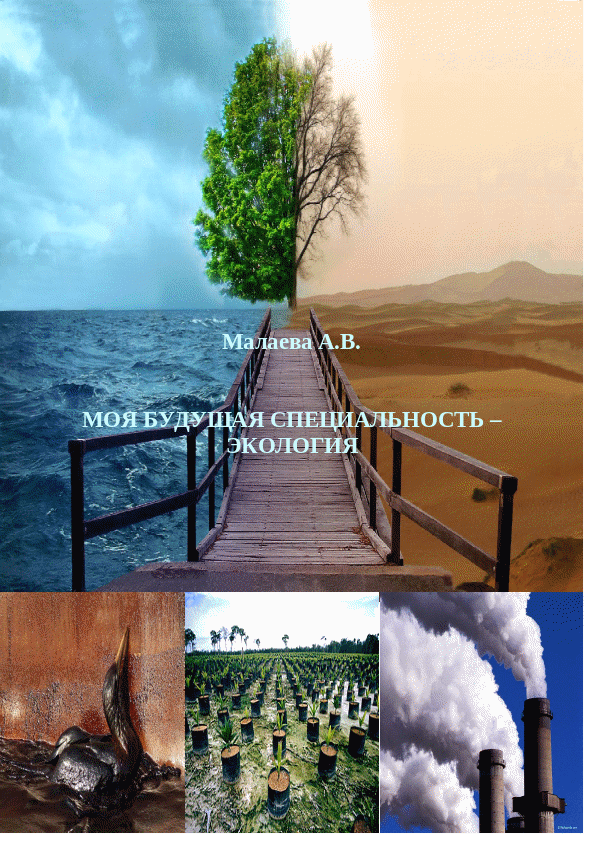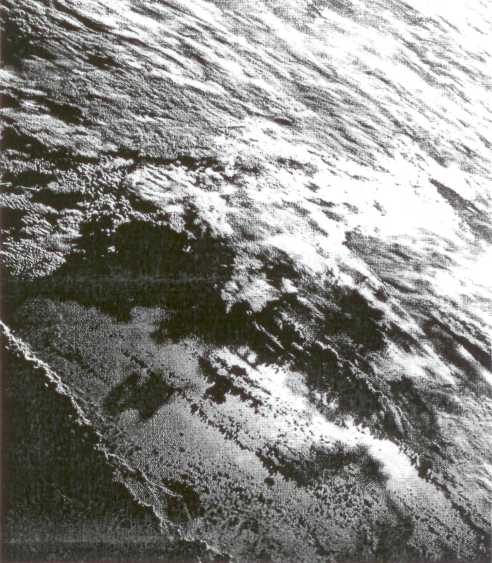
- •Оглавление
- •Введение
- •Unit 1. The Concept of Biosphere
- •1. Discuss these questions with your partner.
- •3. Skim the text. The biosphere
- •4. Decide if the following statements are true or false.
- •5. Read the text again and answer the following questions.
- •Read the text about the great Russian scientist and comment on his contribution to the development of science.
- •Vladimir Vernadsky
- •8. Choose the correct answer.
- •9. Listen to the class discussion about uranium. Then decide if the following statements are true or false.
- •10. Say it in English:
- •Unit 2. Ecology
- •1. Answer the following questions.
- •2. Read the text about the science of ecology and give the definitions to the following: ecology, environment, animal behavior, environmental biology, natural selection, ecosystem,
- •4. Read the information about earth sciences paying attention on the disciplines mentioned bellow.
- •6. Read the text bellow and say why there is a great demand in experts in the field of ecology in our region.
- •7. Read a magazine article about ecologists who have written books. For questions 1-15, choose from the people ( a-d)
- •8. How has each person in the text helped to protect the environment? Unit 3 Ecological problems
- •1. Read the following explanations and translate the underlined words into Russian.
- •3. Read and translate the text using a dictionary. Environmental problems
- •4. Find English equivalents for the following words and phrases in text.
- •5. Match the following words with their synonyms from the opposite column.
- •6. Correct the following statements using the information from the text.
- •7. Answer the following questions using the information from the text. Work in pairs. Use such expressions as:
- •9. Read the information about the influence of human activities on the environment. Here are some examples of environmental problems and solutions to talk about them.
- •14. Choose the best suitable subject for the articles.
- •15. Open the brackets using the proper tense forms.
- •Unit 4 Applying for a job.
- •4. Make combinations using the words from the three columns (consult dictionary if needed) and the questions given below.
- •5. Find out and explain the difference among the phrases.
- •7. Choose a statement or a question from the listed above as a theme for your essay.
- •8. Read the title and opening quotation from an article giving careers advice on finding your ideal job. What advice and information do you think the article will give on the following questions?
- •9. Read the article and check your answers in exercise8. Finding your ideal job - its all about… you
- •Firstly, what do you want work to do for you?
- •10. Explain the meaning of these expressions from the article.
- •11. Decide which answer (а, в, с or d) best fits each space. Choosing a job
- •Unit 1. Covering letter and cv
- •Studying the sample
- •2. Read his covering letter and his cv (Curriculum Vitae), and put the missing words in gaps 1-12.
- •Curriculum Vitae
- •Steps to better writing
- •6. Read Susanna's covering letter, find 12 mistakes in what she has written, and rewrite the letter.
- •Writing your application
- •7.Write a letter to a science museum applying for a part-time job (100-140 words). Using Adrian's cv as a model, write your own cv.
- •Use these notes to help you.
- •Характерные черты официального письма
- •Unit 2.
- •Interview
- •1. Discuss the questions with your partner.
- •2. Read the text and questions below. Job interviews
- •3. Scan the text and mark the correct letter а, в, с or d for each question.
- •4. Listen to the first part of an interview with Rob Yeung, a business psychologist, talking about how to succeed at job interviews. Answer the questions.
- •5. Listen to the second part of the interview. Answer the questions.
- •6. Work in pairs. If you were recruiting someone for your own job (or a job that you know well) what interview questions and tests or tasks would you set? What would be the ideal answers?
- •Scoring
- •15 Or more
- •7 Or fewer

ФЕДЕРАЛЬНОЕ АГЕНТСТВО ПО РЫБОЛОВСТВУ
ФЕДЕРАЛЬНОЕ ГОСУДАРСТВЕННОЕ ОБРАЗОВАТЕЛЬНОЕ УЧРЕЖДЕНИЕ ВЫСШЕГО ПРОФЕССИОНАЛЬНОГО ОБРАЗОВАНИЯ
“МУРМАНСКИЙ ГОСУДАРСТВЕННЫЙ ТЕХНИЧЕСКИЙ УНИВЕРСИТЕТ”
Кафедра
иностранных языков
МОЯ БУДУЩАЯ СПЕЦИАЛЬНОСТЬ –
ЭКОЛОГИЯ
Методические указания
по развитию навыков устной речи
для студентов младших курсов
специальности 020800.62
"Экология и природопользование"
Мурманск
2009
УДК
ББК
Составитель – |
Анна Владимировна Малаева, ст. преподаватель кафедры иностранных языков Мурманского государственного технического университета |
Методические указания рассмотрены и одобрены кафедрой, протокол
№ 9 от 22 мая 2009года.
Рецензент – |
И. В.Смирнова, доцент кафедры иностранных языков Мурманского государственного технического университета |
Редактор Г.В. Зобнина
© Мурманский государственный технический университет, 2009
Оглавление
Введение 5
Введение
Целью методических указаний является развитие навыков говорения по теме «Моя будущая специальность». Методические указания построены на аутентичных англоязычных научно-популярных текстах. Предтекстовые упражнения знакомят студентов с новыми словами и терминами, встречающимися в текстах, активизируют знакомую студентам лексику, готовят к обсуждению проблем, изложенных в текстах. Послетекстовые упражнения направлены на контроль понимания содержания текстов, закрепления новых лексических единиц.
В методических указаниях представлены упражнения, развивающие навыки письменной речи, а также упражнения, стимулирующие высказывания студентами собственного мнения и его аргументацию.
В результате изучения данных методических указаний студенты должны пополнить свой лексический запас за счёт новых слов и терминов, связанных с их будущей специальностью, научиться обсуждать специфику профессиональных вопросов.
Unit 1. The Concept of Biosphere
1. Discuss these questions with your partner.
What different forms of life exist on Earth?
What effect do human beings have on the planet?
How do you see the future of our planet?
Suggest some measures to improve it.
2. Complete the definitions below with words from the box.
|
|
To ………………… means to live in a particular place.
A(n) ……………. animal or plant no longer exists.
To ………………………. means to change physically over a long period of time.
A(n) …………………. is an effect.
To …………………. a term means to use a word or phrase that no one has used before.
A(n) ………….. is a covering.
means lasting forever.
means not exactly.
9. Scientists often global change will destroy our Earth.
3. Skim the text. The biosphere
The biosphere is the layer of the Earth in which all life exists. The term biosphere was coined in 1875 by the geologist, Eduard Suess, but it was Vladimir Vernadsky who recognised its ecological importance in 1929. He believed that all living organisms together with their environments make up the biosphere. These environments include the air (the atmosphere), bind (the geosphere), rocks (the lithosphere) and water (the hydrosphere). The exact thickness of the biosphere on Earth is difficult to calculate, but most scientists would agree that it is from about 5000 metres above sea level to around 9000 metres below sea level. Thus, there is a 14-kilometre zone within which life exists.
The biosphere is important because it is all of life. Without the biosphere, Earth would be a lifeless planet like all the others in our solar system. Also, the biosphere could not exist without water. Water is essential for all living organisms on Earth and has played a very important role in the evolution of life on our planet. Life on Earth began approximately 3.5 billion years ago in the oceans. At that time, Earth was very different from what it is today.

The earliest forms of life were very simple organisms similar to modern bacteria. Over millions of years, more complex organisms evolved and in time, many different forms of life began to inhabit the land, the sky and the oceans. They all depended on each other to survive. The biosphere is like a ladder. This ladder is known as the food chain, and all life depends on the first step of the ladder which is made up of plants. Animals eat the plants; bigger animals eat the smaller animals, and so on. In this way, all organisms are closely connected to their environment.
The biosphere is what keeps us alive. It gives us our food, water and the air that we breathe. Everything we need in order to grow and survive comes directly from the biosphere, so it is important to protect it; however, humans have not always done that. Humans have had a huge impact on the biosphere. Sometimes this has been good, but at other times it has been very destructive. The growing human population on Earth means there is less room for other species and by destroying their habitats we have made many types of plants and animals extinct.
As scientists learn more about our world, they can help us to understand the biosphere, how it evolved, and even try to predict how the biosphere will respond to global change and human activities. Scientists are very concerned about the future, particularly how people will affect the environment in harmful ways. It is very important to try to prevent any permanent damage, or we will destroy ourselves.
